|
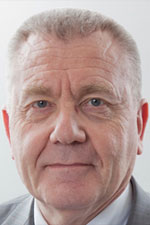
|
Jean-Pierre Bourguignon has been President of the European Research Council since January 2014. In 2013, he became Directeur de recherche emeritus at CNRS. Director of the Institut des Hautes Études Scientifiques in Bures-sur-Yvette (1994-2013), he also taught Mathematics at École polytechnique (1986-2012).
A graduate from École Polytechnique (class 1966), he holds a PhD in Mathematical Sciences from University Paris VII (1974).
His research concerns differential geometry, global analysis and mathematical aspects of theoretical physics.
He was president of the European Mathematical Society (1995-1998).
Member of the Academia Europaea, he holds Honorary Doctorate degrees from Keio University and Nankai University.
|
| |
|
|
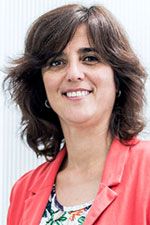
|
Dr Ana I. Caño-Delgado is a professor and coordinator of the Plant Signalling and Development Programme at the Centre for Research in Agricultural Genomics (CRAG) in Barcelona. She did a Ph.D. in Biology at the University of East Anglia (UK) and was a HFSPO Postdoctoral Fellow at the Salk Institute for Biological Studies (US). She has received several awards in both science and entrepreneurship. In 2016, she became an elected EMBO member.
Ana Caño-Delgado uses the plant model system Arabidopsis to investigate the processes by which plant steroid hormones (known as brassinosteroids) control growth and adapt to the changing environment, in particular to drought. She recently discovered that modifying brassinosteroid signalling in the plant vascular system confers resistance to drought without penalising growth, opening novel possibilities for uncoupling drought resistance from plant growth arrest.
Her studies in Arabidopsis may have important applications in the fields of agriculture and food security, and are being translated to cereals (Sorghum) in order to increase their tolerance to drought, currently one of the most important problems of agriculture.
Her research is currently funded by an ERC Consolidator Grant.
ERC project
ERC 2018 research highlights
|
| |
|
|
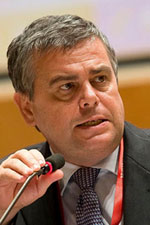
|
Gabriele Centi is full professor of Industrial Chemistry at the University of Messina, Italy, and President of the European Research Institute of Catalysis (ERIC). Research interests are in the areas of applied heterogeneous catalysis, sustainable energy and chemical processes, biomass conversion and environment protection.
He was coordinator of the EU Network of Excellence IDECAT, is the current President of the International Association of Catalysis Societies, and vice-President of the InterUniversity Consortium on the Science and Technology of Materials (INSTM). He was coordinator or PI in over 20 EU projects, besides many other national and industrial projects. He recently started and coordinated an ERC Synergy grant on plasma-catalysis. He has received several awards, and is involved in various editorial activities, as well as chairing the editorial board of ChemSusChem and is co-editor in chief of the Journal of Energy Chemistry. He was chairperson of many international conferences, including Europacat 2017 in Florence and the 16th International Zeolite Conference joint with the 7th International Mesostructured Materials Symposium (Sorrento, Italy, 2010).
He is author of over 450 scientific publications, 12 books and editor of various special issues. Current h-index is 79 with about 24,000 citations.
|
| |
|
|
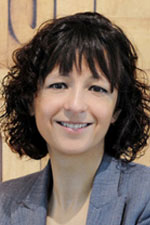
|
Emmanuelle Charpentier studied biology, microbiology, biochemistry and genetics at the University Pierre and Marie Curie (UPMC), Paris (1986-1992) and was a graduate student at Institut Pasteur (1992-1995) and University Teaching Assistant at UPMC, Paris (1993-1995). She did his postdoc at Institut Pasteur (1995-1996) and at The Rockefeller University, New York (1996-1997) and then held positions at the New York University Medical Centre (1997-1999), St. Jude Children's Research Hospital (1999) and the Skirball Institue of Biomolecular Medicine, New York (1999-2002).
From 2002, Emmanuelle has held various positions including: Lab Head and Guest Professor at the Institute of Microbiology and Genetics (2002-2004); Vienna University, Lab Head, Assistant Professor at the Department of Microbiology and Immunobiology (2004-2006); Private Docent (Microbiology) and Habilitation, Centre of Molecular Biology (2006); Lab Head and Associate Professor at the Max F. Perutz Laboratories (2006-2009); Lab Head, Associate Professor at the Laboratory for Molecular Infection Medicine Sweden (MIMS), Umeå University (2009-2014) and since 2014 Lab Head as Visiting Professor; Docent (Medical Microbiology), Umeå University (2013); Department Head and W3 Professor at the Helmholtz Centre for Infection Research, Braunschweig and the Hannover Medical School (2013-2015).
In 2014, she became Alexander von Humboldt Professor, was Director at the Max Planck Institute for Infection Biology (2015-2019) and has been Honorary Professor at Humboldt University in Berlin since 2016.
Emmanuelle is currently Founding Director and Head of the Max Planck Unit for the Science of Pathogens.
|
| |
|
|
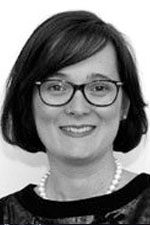
|
Camilla Colombo is Associate Professor at the Department of Aerospace Science and Technology of the Politecnico di Milano, Italy. She obtained her Ph.D. in Aerospace Engineering from the University of Glasgow (UK). She is the Principal Investigator of the ERC COMPASS project. Her ERC Starting Grant project aims to bridge the disciplines of orbital dynamics, dynamical systems theory, optimisation and space mission design by developing novel techniques for orbit manoeuvring by surfing through orbit perturbations. Together with her research group, she is developing methods for better understanding and leveraging the dynamics of natural forces acting on satellites and space debris. This will reduce the cost of travelling in orbit for small satellites. It will create new opportunities for space exploration and exploitation, such as missions to asteroid orbit manipulation and mining. The exploitation of orbit perturbations allows achieving end-of-life disposal manoeuvres for space mission, for a more sustainable use of Space.
ERC project
ERC story
|
| |
|
|
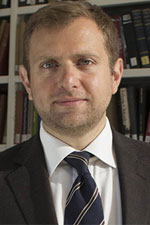
|
Riccardo Crescenzi is a Professor of Economic Geography at the London School of Economics and is the current holder of a European Research Council (ERC) Grant. He is also an Associate at the Centre for International Development, Harvard Kennedy School of Government, Harvard University and he is affiliated with the European Institute, Centre for Economic Performance (CEP) and the Spatial Economics Research Centre (SERC) at the LSE.
He has been a Jean Monnet Fellow at the European University Institute (EUI) and a Visiting Scholar at the Harvard Kennedy School of Government, Taubman Centre and at the University of California Los Angeles (UCLA). Riccardo has been the Rapporteur of the High Level Expert Group on Innovative Cities established by the European Commission DG RTD to assist in the formulation of a new, forward-looking and visionary Strategic and Research Innovation Agenda (SRIA) to enhance the innovation capacity of European Cities.
His research is focused on urban and regional innovation, economic development, Foreign Direct Investment (FDI) and Global Value Chains (GVCs), and the analysis and evaluation of European Union policies.
ERC project
ERC story
|
| |
|
|
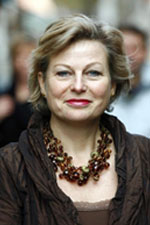
|
Pearl Dykstra has a chair in Empirical Sociology and is Director of Research of the Department of Public Administration and Sociology at the Erasmus University Rotterdam. Previously, she had a chair in Kinship Demography at Utrecht University (2002-2009) and was a senior scientist at the Netherlands Interdisciplinary Demographic Institute (NIDI) in The Hague (1990-2009).
Her publications focus on intergenerational solidarity, aging societies, family change, aging and the life course, and late-life well-being. She is an elected member of the Netherlands Royal Academy of Arts and Sciences (KNAW, 2004) and Vice-President of the KNAW as of 2011, elected Member of the Dutch Social Sciences Council (SWR, 2006), and elected Fellow of the Gerontological Society of America (2010). In 2012 she received an ERC Advanced Investigator Grant for the research project “Families in context”, which will focus on the ways in which policy, economic, and cultural contexts structure interdependence in families. She is the vice chair of European Commission’s Group of Chief Scientific Advisors.
|
| |
|
|
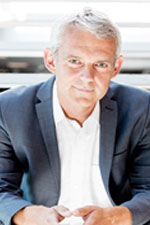
|
Heino Falcke has a broad background in theoretical astrophysics as well as experimental radio astronomy and is full professor at the Radboud University in Nijmegen. In 2011, Falcke received the Spinoza award, the highest science award of the Netherlands, and is member of the Royal Netherlands Academy of Arts and Science (KNAW) since 2014. He was honoured with the royal distinction of knight in the order of the Netherlands Lion for his scientific work in 2016. In 2000, Falcke pioneered the idea of imaging the shadow of the event horizon of black holes with very long baseline interferometry at millimetre-waves (mm-VLBI). For this he received in 2013 a Synergy Grant of the European Research Council of 14 M€ together with two other co-Principal Investigators and established the “BlackHoleCam” project. The grant was given to the top 2% of submitted proposals across all disciplines in Europe. Falcke is founding member and chair of the science council of the global Event Horizon Telescope (EHT) consortium, which conducts first experiments to image black holes and the BlackHoleCam team members are active partners of this consortium. From 2003-2011, he was the international project scientist for LOFAR telescope, pioneering the radio detection of cosmic rays with support of an ERC advanced grant.
ERC projects
Horizon Magazine article
|
| |
|
|
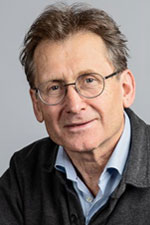
|
Ben L. Feringa obtained his Ph.D. from the University of Groningen in the Netherlands under the guidance of Professor Hans Wynberg. After working as a research scientist at Shell in the Netherlands and the UK, he was appointed lecturer, and in 1988 full professor, at the University of Groningen and named the Jacobus H. van 't Hoff Distinguished Professor of Molecular Sciences in 2004.
He was elected Foreign Honorary member of the American Academy of Arts and Sciences and is a member of the Royal Netherlands Academy of Sciences. In 2008, he was appointed Academy Professor and he was knighted by Her Majesty the Queen of the Netherlands.
Feringa’s research has been recognized with numerous awards including; the Körber European Science Award (2003), the Spinoza Award (2004), the Prelog gold medal (2005), the Norrish Award of the ACS (2007), the Paracelsus medal (2008), the Chirality medal (2009), the RSC Organic Stereochemistry Award (2011), the Humboldt award (2012), the Nagoya gold medal (2013), the ACS Cope Scholar Award (2015), the Chemistry for the Future Solvay Prize (2015), the August-Wilhelm-von-Hoffman Medal (2016), the 2016 Nobel prize in Chemistry, the Tetrahedron Prize (2017) and the European Chemistry Gold Medal (2018).
In 2019 he was elected as a member of the European Research Council.
|
| |
|
|

|
Dr. Gut is Director of the Centro Nacional de Análisis Genómico (CNAG-CRG), one of the largest genome sequencing centres in Europe. From 1999 to 2009 he established, at the Centre National de Génotypage (CNG), the highest throughput genotyping platform in Europe and executed many genome-wide association studies; he was the coordinator of the EU-funded Project READNA in which 2nd, 3rd and 4th generation nucleic acid analysis technologies were developed. He received his PhD in Physical Chemistry from the University of Basel in 1990. He is the author of more than 400 research papers, 11 reviews and 12 book chapters, cited over 37,700 times, inventor of 25 patents or patent applications, founder of four biotech start-ups, and serves on numerous international advisory boards
|
| |
|
|
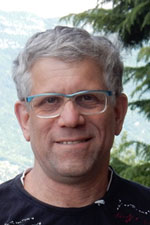
|
Mordechai (Muki) Haklay is a Professor of Geographic Information Science at the Department of Geography, UCL and the co-director of the Extreme Citizen Science group. His work focuses on participatory mapping, citizen science, crowdsourced geographical information, and public access and use of environmental information. He coordinated the H2020 project Doing It Together Science (DITOs), he is the PI on an ERC Advanced Grant Extreme Citizen Science: Analysis and Visualisation (ECSAnVis), and Co-Vice Chair of the European Citizen Science Association (ECSA).
ERC project
|
| |
|
|
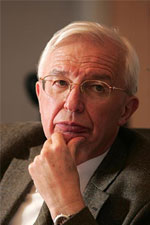
|
Jean-Marie Lehn was born in Rosheim, France in 1939. In 1970, he became Professor of Chemistry at the Université Louis Pasteur in Strasbourg and from 1979 to 2010 he was Professor at the Collège de France in Paris. He is currently Professor at the University of Strasbourg Institute for Advanced Study (USIAS). He shared the Nobel Prize in Chemistry in 1987 for his studies on the chemical basis of molecular recognition (i.e. the way in which a receptor molecule recognizes and selectively binds a substrate), which also plays a fundamental role in biological processes. Over the years his work led him to the definition of a new field of chemistry, which he has proposed calling supramolecular chemistry as it deals with the complex entities formed by the association of two or more chemical species held together by non-covalent intermolecular forces, whereas molecular chemistry concerns the entities constructed from atoms linked by covalent bonds. Subsequently, the area developed into the chemistry of self-organisation processes and more recently towards adaptive chemistry, dynamic networks and complex systems.
Author of over 1000 scientific publications, Lehn is a member of many academies and institutions. He has received numerous international honours and awards.
ERC project
|
| |
|
|

|
Tony Lockett is head of unit for Communication at the European Research Council Executive Agency. From artificial intelligence to exoplanets, he and his team aim to explain the relevance of complex EU-funded science in an accessible way to the media and to the public. He is a great believer in Einstein's view that "If you can't explain it simply, you don't understand it well enough". Tony has previously held communication roles in the European Commission's DGs for Regional and Urban Policy, Human Resources, Employment, Social Affairs and Inclusion.
|
| |
|
|
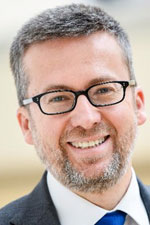
|
Carlos Moedas is the European Commissioner responsible for Research, Science and Innovation, a position he has held since 2014. He was born in Beja (Portugal) in 1970, graduated in Civil Engineering from the Higher Technical Institute (IST) in 1993 and completed the final year of studies at the École Nationale des Ponts et Chaussées in Paris (France). He worked in engineering for the Suez-Lyonnaise des Eaux group in France until 1998. He obtained an MBA from Harvard Business School (USA) in 2000, after which he returned to Europe to work at investment bank Goldman Sachs in London (UK). He returned to Portugal in 2004 as Managing Director of Aguirre Newman and member of the Executive Board of Aguirre Newman in Spain. In 2008, he founded his own investment company, Crimson Investment management.
In 2011, he was elected to the National Parliament and was appointed by the government as Secretary of State to the Prime Minister of Portugal in charge of the Portuguese Adjustment Programme.
|
| |
|
|
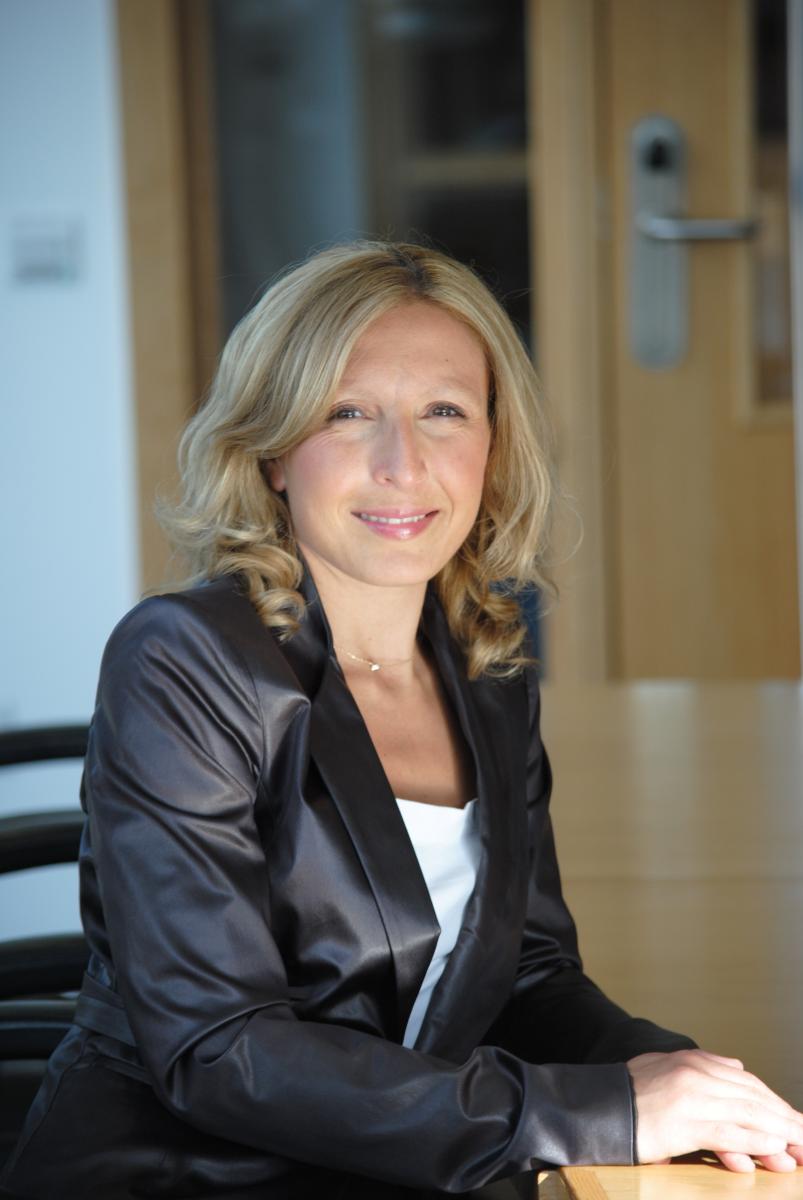
|
Professor Valeria Nicolosi is the Chair of Nanomaterials and Advanced Microscopy at the School of Chemistry in Trinity College Dublin (TCD) and a Principal Investigator in the Science Foundation Ireland Research Centres AMBER & I-Form. She is the TCD Director of the EPSRC/SFI Centre of Doctoral Training in the Advanced Characterisation of Materials.
She received a BSc (Hons) in Industrial Chemistry from the University of Catania, Italy and a Ph.D. in Physics from the University of Dublin, Trinity College in 2006. She moved to the University of Oxford in February 2008 as a Marie Curie Fellow. In April 2008, she was awarded with a Royal Academy of Engineering/EPSRC Fellowship.
This fellowship provided a total of €1m funding. In 2011, she was awarded a €1.5m starting grant from the European Research Council to expand her work in processing and advanced characterisation of nanomaterials devoted to the development of novel energy storage devices.
In 2012, she returned to Trinity College Dublin as Research Professor. In 2016, she was promoted to Chair of Nanomaterials and Advanced Microscopy. She is the first woman to have reached the position of Chair in the School of Chemistry since the foundation of Trinity College Dublin in 1592.
In 2016 she was awarded a €2.5m ERC Consolidator Grant to develop 3D printed energy storage devices vased on 2D nanomaterials inks. Prof. Nicolosi is the only six times ERC awardee in Europe
Prof. Nicolosi has published more than 200 high-impact-papers, including Science, Nature, Nature Energy, Nature Nanotechnology, Nature Materials, and delivered more than 150 invited and plenary presentations at major conferences, institutions and public events. Prof. Nicolosi’s research has attracted more than €20m funding over the last eight years.
She has won numerous awards: the RDS/Intel Prize for Nanoscience 2012, the World Economic Forum Young Scientist 2013, EU Woman in Technology Award 2013, SFI President of Ireland Young Researcher Award 2014, SFI Irish Early Stage Researcher 2016, TCD ERC Awardee 2017, Women Business Forum Women of the Decade in Science & Innovation 2018.
Prof. Nicoli has recently been appointed to serve as Board member to the European Innovation Council (EIC).
|
| |
|
|
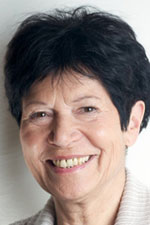
|
Helga Nowotny is Professor emerita of ETH Zurich and Former President of the European Research Council. She is currently Chair of the ERA Council Forum Austria, and Visiting Professor at Nanyang Technological University, Singapore. Her active engagement in scientific boards includes: the Falling Walls Foundation (member of the board); Lindau Nobel Laureate meetings (Vice-President); Complexity Science Hub Vienna (Chair); and others. She has received numerous awards from scientific academies and universities in Europe and abroad, most recently an Honorary Doctorate from the University of Oxford and the Leibniz-Medal from the BBAW in Berlin.
Her latest book publications are The Cunning of Uncertainty (2015) and An Orderly Mess (2017).
|
| |
|
|
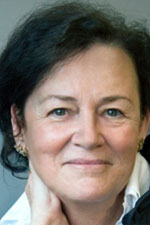
|
Christine Petit
CURRENT POSITIONS:
- Director of the Hearing Institute, Paris XII
- Professor at College de France, Chair of Genetics and Cellular Physiology
- Professor “Classe Exceptionnelle” at Pasteur Institute, Paris
UNIVERSITY DEGREES:
- 1982 Doctorate in Natural Sciences and Biochemistry, University Paris VII
- 1974 Doctorate in Medicine, University Paris VI
AWARDS AND HONOURS:
- KAVLI Prize in Neuroscience – Norway (2018)
- Foreign member of the National Academy of Sciences - USA (2016)
- Louis-Jeantet for Medicine Prize - Europe (2006)
- Ernst Jung-Preis für Wissenschaft und Forschung: Medizin -Germany (2001)
- Member of the French Academy of Sciences (1996)
ERC project
ERC news - ERC grantees win Kavli prizes
|
| |
|
|
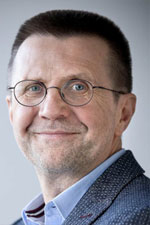
|
Virginijus Siksnys studied chemistry at Vilnius University and obtained his Ph.D. from Moscow State University before returning to Vilnius where he moved through different research ranks at the Institute of Applied Enzymology/Institute of Biotechnology. Since 2002, he has held the position of Professor of Vilnius University and serves as Chief Scientist at the Institute of Biotechnology.
Dr Siksnys has made a major and sustained contribution to the understanding of the structure and function of restriction enzymes. His research on the CRISPR-Cas has had a major impact on the field. His studies of the Cas9 protein paved the way for development of novel tools for genome editing applications. He is a member of Academia Europaea, EMBO, Lithuania Academy of Sciences and Norwegian Academy of Sciences and Letters. His work has recently been recognised with several awards and prizes.
|
| |
|
|
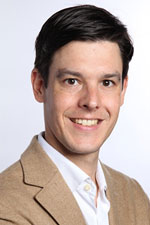
|
Prof. dr. ir. Bram Vanderborght obtained his PhD from the Vrije Universiteit Brussel in 2007. He performed research on the humanoids robot HRP-2 at the Joint Japanese/French Robotics Laboratory (JRL) in AIST, Tsukuba, Japan. From October 2007 to April 2010 he worked as a post-doc researcher at the Italian Institute of Technology in Genova, Italy. In October 2009 he was appointed as professor at the VUB.
He had an ERC starting grant on SPEA actuation concept and is coordinator of the EU FET project SHERO on self-healing soft robots. He is member of the Young Academy of the Royal Flemish Academy of Belgium for Science and the Arts.
He is active in several EU and national projects, is core lab manager of Flanders Make and a member of the Brussels Human Robotics Research Centre. His research interests include cognitive and physical human robot interaction with core technology of using variable impedance actuators in applications for health and manufacturing like humanoids, exoskeletons, prostheses, social robots and cobots. He is the current EiC of the IEEE Robotics and Automation Magazine.
ERC project
|
| |
|
|
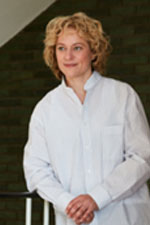
|
Stephanie Wehner is Antoni van Leeuwenhoek Professor at Delft University of Technology. As Roadmap Leader Quantum Internet and Networked Computing she is responsible for QuTech’s quantum networks objectives. Her passion is quantum communication in all its facets, and she has written numerous scientific articles in both physics and computer science. Stephanie is one the founders of QCRYPT, which has become the largest conference in quantum cryptography, the coordinator of the Quantum Internet Alliance, and has been awarded the KNAW Ammodo Science Award 2019.
From 2010 to 2014, her research group was located at the Centre for Quantum Technologies, National University of Singapore, where she was first Assistant and later Associate Professor. Previously, she was a postdoctoral scholar at the California Institute of Technology in the group of John Preskill.
In a former life, she worked as a professional hacker in industry.
ERC project
|
